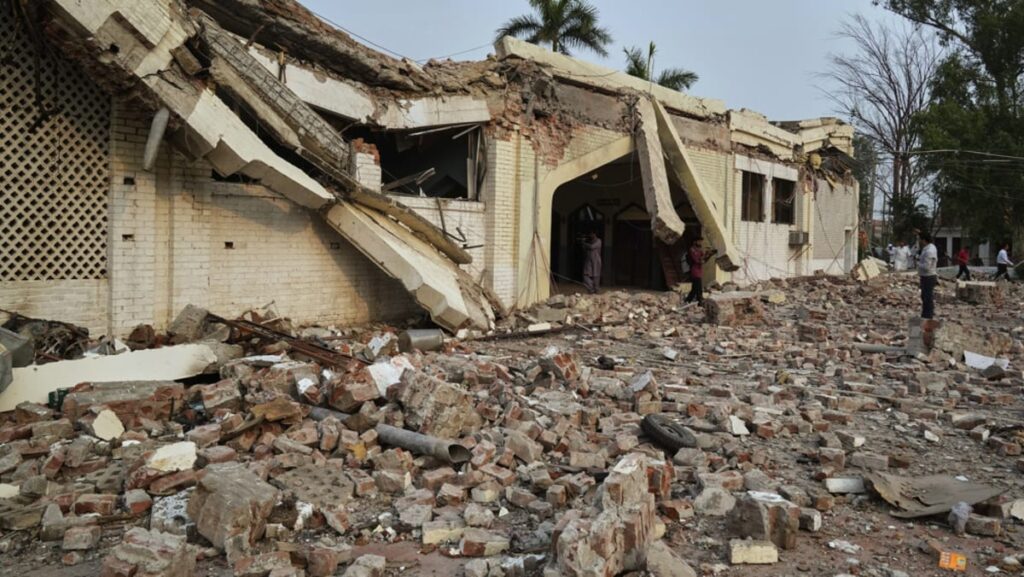NEW DELHI: India and Pakistan exchanged heavy artillery fire along their contested frontier on Wednesday (May 7) after New Delhi launched deadly missile strikes on its arch rival, in the worst violence between the nuclear-armed neighbours in two decades.
At least 38 deaths were reported, with Islamabad saying 26 civilians were killed by the Indian strikes and firing along the border, while New Delhi reported 12 dead from Pakistani shelling.
India said it had struck nine “terrorist infrastructure” sites, some of them linked to an attack by gunmen on Hindu tourists that killed 26 people in Indian Kashmir last month, with New Delhi adding that its actions “have been focused, measured and non-escalatory in nature”.
The Indian strikes included targets in Punjab, its first attacks on Pakistan’s most populous province since the last full-scale war between the old enemies more than half a century ago, triggering fears of further hostilities in one of the world’s most dangerous flashpoints.
Pakistan Defence Minister Khawaja Muhammad Asif accused Indian Prime Minister Narendra Modi of launching the strikes to “shore up” his domestic popularity, adding that Islamabad “won’t take long to settle the score”.
Islamabad pledged to respond “at a time, place and manner of its choosing to avenge the loss of innocent Pakistani lives and blatant violation of its sovereignty”, while a government security committee rejected Indian allegations of the presence of terrorist camps on its territory.
Military spokesman Ahmed Sharif Chaudhry claimed that five Indian jets had been downed across the border, but this was not confirmed by India.
Local government sources in Indian Kashmir told Reuters that three fighter jets had crashed in separate areas of the Himalayan region during the night and their pilots had been hospitalised, but Indian defence ministry officials had yet to confirm this.
The Indian embassy in Beijing later called reports of fighter jets downed by Pakistan “disinformation”.
In Muzaffarabad, the main city of Pakistan-administered Kashmir, troops cordoned off streets around a mosque Islamabad said was struck, with blast marks visible on the walls of several nearby homes.
United Nations military observers arrived on Wednesday afternoon to inspect the site, which was blown out on one side.
Pakistan also said a hydropower plant in Kashmir was also targeted by India, damaging a dam structure, after India threatened to stop the flow of water on its side of the border.
Islamabad had earlier warned that tampering with the rivers that flow into its territory would be an “act of war”.
The latest violence exceeds India’s strikes in 2019, when New Delhi said it had hit “several militants” after a suicide bomber attacked an Indian security force convoy, killing 40.
India had been widely expected to respond militarily to the Apr 22 attack on tourists in Indian-administered Kashmir by gunmen it said were from Pakistan-based group Lashkar-e-Taiba, a UN-designated terrorist organisation.
New Delhi has blamed Islamabad for backing the attack, sparking a series of heated threats and diplomatic tit-for-tat measures, while Pakistan has rejected the accusations amid calls for an independent probe.
According to CNA’s correspondent in New Delhi, Modi held a full Cabinet meeting on Wednesday afternoon, briefing members on the military operation that was conducted overnight.
India’s Home Ministry, which is in charge of internal security, has asked paramilitary forces to return from leave and to be on standby.
Read the full article here

